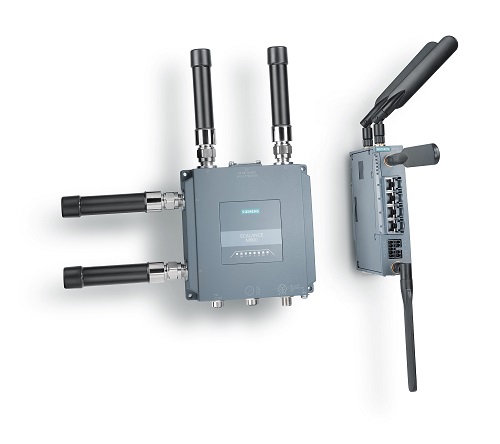
Siemens launches its first industry-ready 5G routers in India
Siemens announced the launch of private industrial 5G user equipment, a critical component for the manufacturing industry in its digital transformation journey. The applications on industrial 5G offer long-term benefits to a wide range of customer segments that depend on a strong communication backbone such as intralogistics, autonomous machines, industrial edge, remote diagnostics, augmented reality, assisted work, wireless backhaul, edge computing and mobile equipment.
Suprakash Chaudhuri, Head – Digital Industries, Siemens Limited, said, “Availability of 5G is a milestone on the path to Industry 4.0, in which smart factories become more flexible and productive thanks to end-to-end digitalization and the Internet of Things. While in most consumer applications the focus is mainly on high data rates, industrial networks tend to focus more on low latency and high availability. This is where private 5G networks step in as they can be configured to suit the requirements of the manufacturing industry. Private 5G networks also offer data security.”
Background
Siemens’ industrial 5G routers Scalance MUM856-1 and MUM853-1 – the first industrial 5G routers from Siemens – will enable enhanced Mobile broadband transmission, massive machine type communication and ultra-relaible low latencies.
The routers connect local industrial applications to public 5G, 4G (LTE) and 3G (UMTS) mobile wireless networks. The router can be used to remotely monitor and service plants, machines, control elements, and other industrial devices via a public 5G network – flexibly and with high data rates.
To ensure the connection of Ethernet-based subnetworks and automation devices, Scalance MUM856-1 supports Release 15 of the 5G standard. The device offers high bandwidths of up to 1000 Mbps for the downlink and up to 500 Mbps for the uplink – providing high data rates for data-intensive applications such as the remote implementation of firmware updates. Thanks to IPv6 support, the devices can also be implemented in modern communication networks.
Various security functions are included in order to monitor data traffic and protect against unauthorized access: for example, an integrated firewall as well as authentication of communication devices and encryption of data transmission via VPN. If there is no available 5G network, the device switches automatically to 4G or 3G networks.


